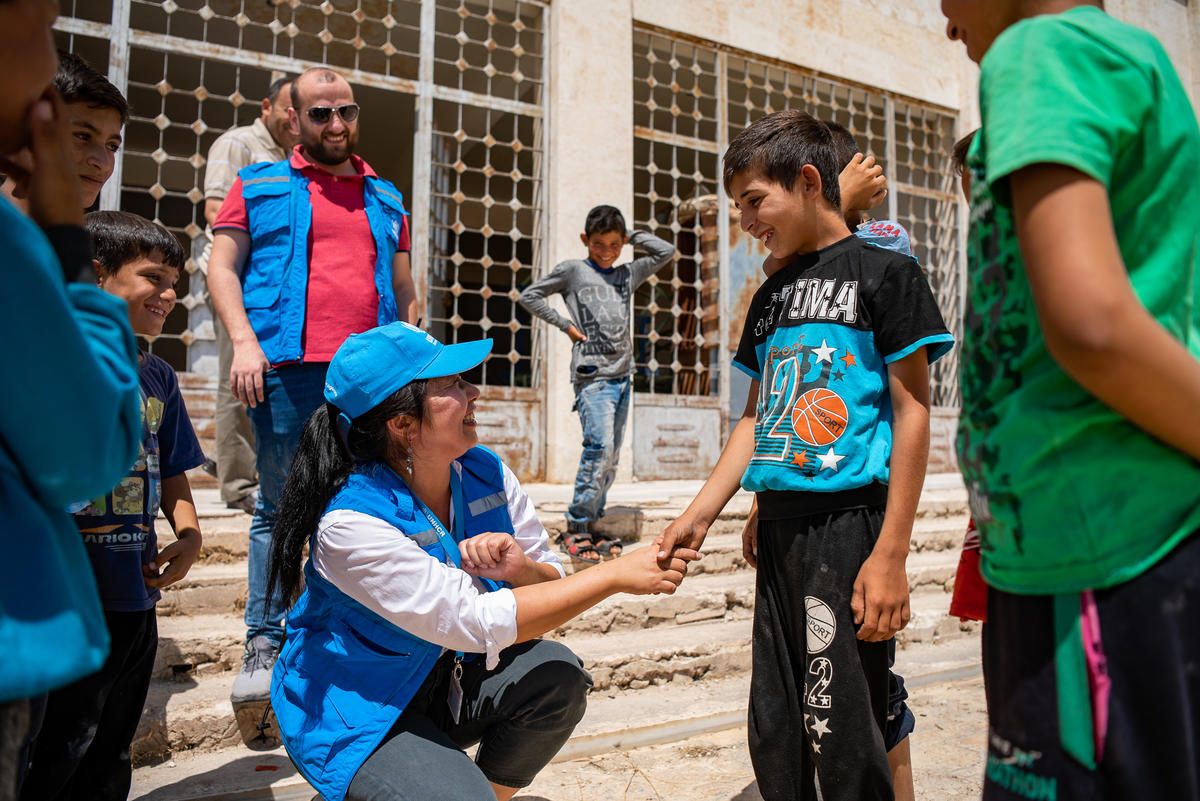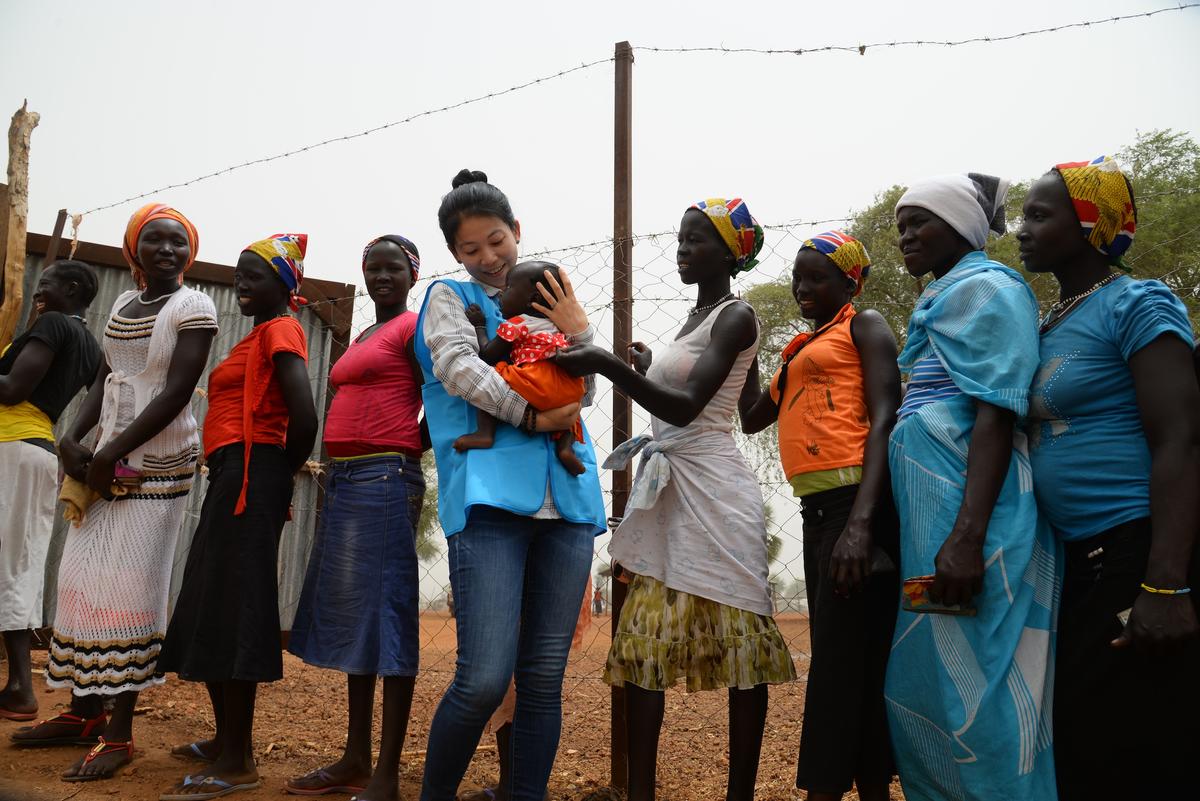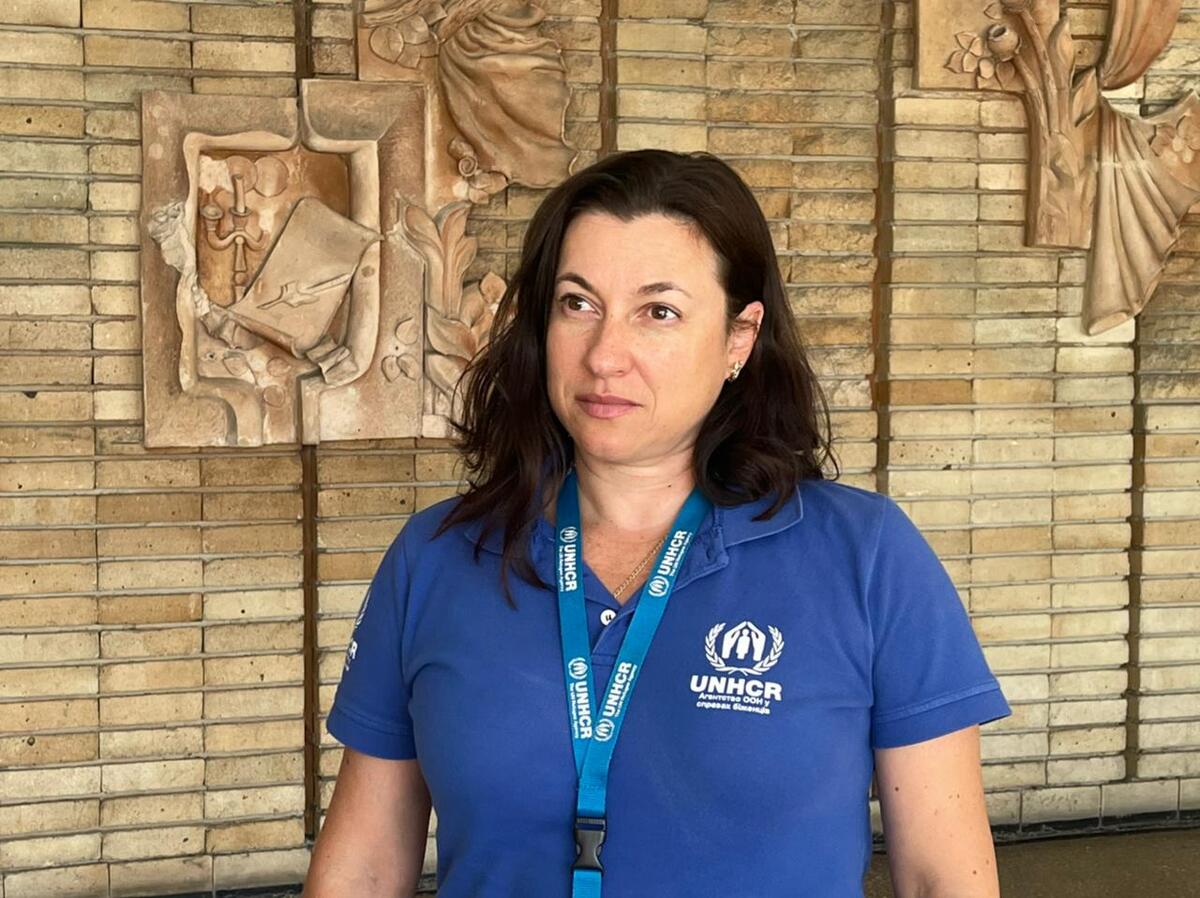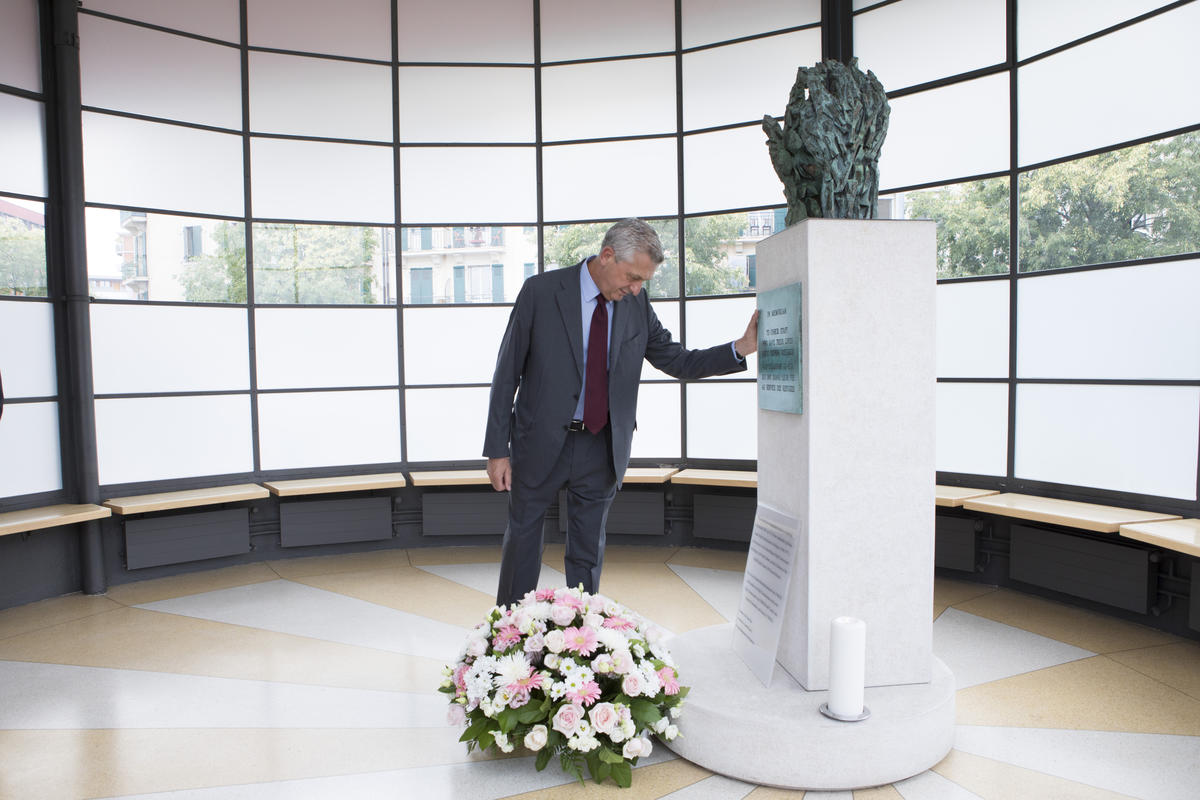UNHCR chief praises aid workers battling multiple crises
UNHCR chief praises aid workers battling multiple crises
to a role made 'significantly harder' by COVID-19.

UN High Commissioner for Refugees Filippo Grandi today praised the “depth of commitment” shown by humanitarian workers during a year in which the COVID-19 pandemic claimed the lives of four UNHCR colleagues and made it “significantly harder … to support people in need.”
In a message to staff to mark World Humanitarian Day, Grandi urged everyone at UNHCR, the UN Refugee Agency, to remember their colleagues – and a partner staff member – lost to the pandemic, and to honour the memory of aid workers around the world who have died while serving others.
“Today we pause to remember all those UNHCR colleagues and aid workers whose lives were taken from them in the course of their humanitarian work,” Grandi said. “We also salute the courage of our colleagues who continue to serve in difficult, often insecure, circumstances around the world.”
Grandi pointed to the “barbaric” attack just two weeks ago in western Niger during which a group of men shot and killed seven aid workers from ACTED and IMPACT, organizations with which UNHCR works closely, during a tour of the Kouré wildlife reserve. The group’s Nigerien guide was also killed.
Grandi sent the staff message from Lebanon where he is on a four-day visit to support those affected by the devastating explosions two weeks ago in Beirut, and hear more about their plight. The blasts killed more than 180 people (including at least 14 refugees), injured more than 6,500 and displaced roughly 300,000 people from their homes. Many people remain missing.
Humanitarian aid workers face increasingly dangerous conditions in many parts of the world. In 2019, 125 aid workers were killed, 234 wounded and 124 kidnapped, according to the Aid Worker Security Database.Link is external As in 2018, most of the major attacks occurred in Syria, followed by South Sudan, the Democratic Republic of the Congo, Afghanistan and the Central African Republic. However, the violence continues to spread. Both Yemen and Mali saw attacks against aid workers double last year.
In the past year, no UNHCR colleagues were killed in “malicious acts or security incidents,” Grandi said. However, one in six UNHCR colleagues worked in “high risk” duty stations, operating in cities, towns and villages beset by violence, war and climate-related hazards.
“I wish to pay tribute to them, and also to the UNHCR field security personnel whose expertise and commitment are critical to managing risks and enabling our teams to stay and deliver vital protection and assistance,” Grandi said.
The United Nations General Assembly established World Humanitarian Day in 2008 to honour 22 aid workers who were killed in the 2003 bombing of the Canal Hotel in Baghdad, which had served as the UN headquarters in Iraq. The UN Secretary General’s Special Representative for Iraq, Sergio Vieira de Mello, died in the blast.
UN Deputy High Commissioner for Refugees Kelly Clements this morning placed a wreath at the staff memorial in Geneva to honour UNHCR workers who lost their lives in the course of serving others.
This year, the United Nations campaignLink is external for World Humanitarian Day pays special tribute to people who provide “life-saving support” to those affected by the COVID-19 pandemic.
UNHCR staff provide health, sanitation and hygiene services to refugees and others around the world and work with governments to ensure countries include refugees in their COVID-19 preparation and response plans. Refugees have likewise proven essential in slowing the spread of the virus. Many work on the frontlines as health-care workers. Others sew masks, make soap, deliver food and supplies to the elderly, or share information with their local communities on preventative measures.
The pandemic exacerbates already difficult situations for many UNHCR colleagues around the world who work far away from family and friends, Grandi said. Travel restrictions make it difficult or impossible for many to visit loved ones, recuperate after arduous assignments or even access quality health care.
“The coming months will undoubtedly bring more difficult moments as the pandemic continues to unfold. Yet I am confident that we will continue to summon the spirit of resilience, flexibility and commitment that has shaped UNHCR’s identity throughout its history, as we continue to face the challenges ahead.








